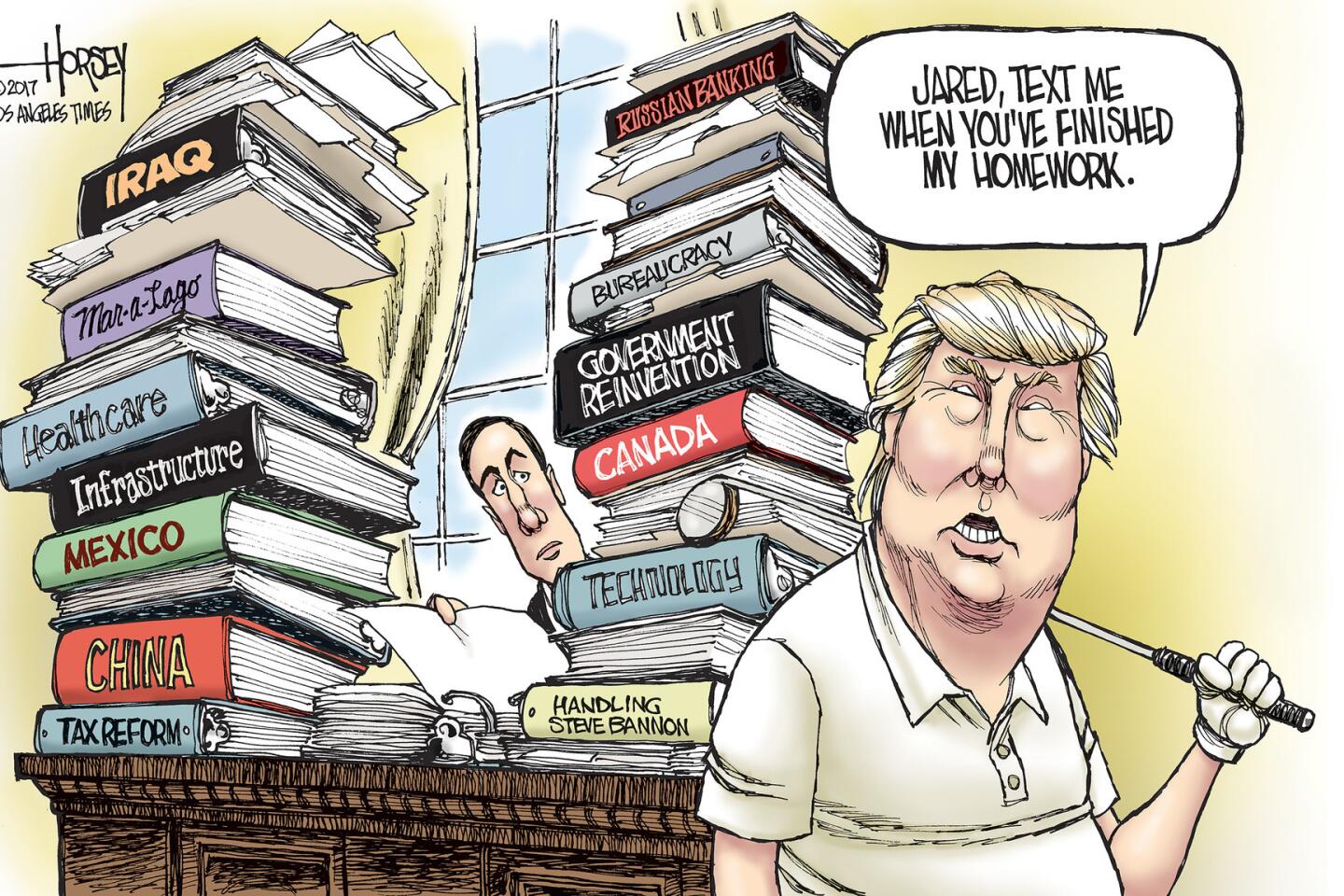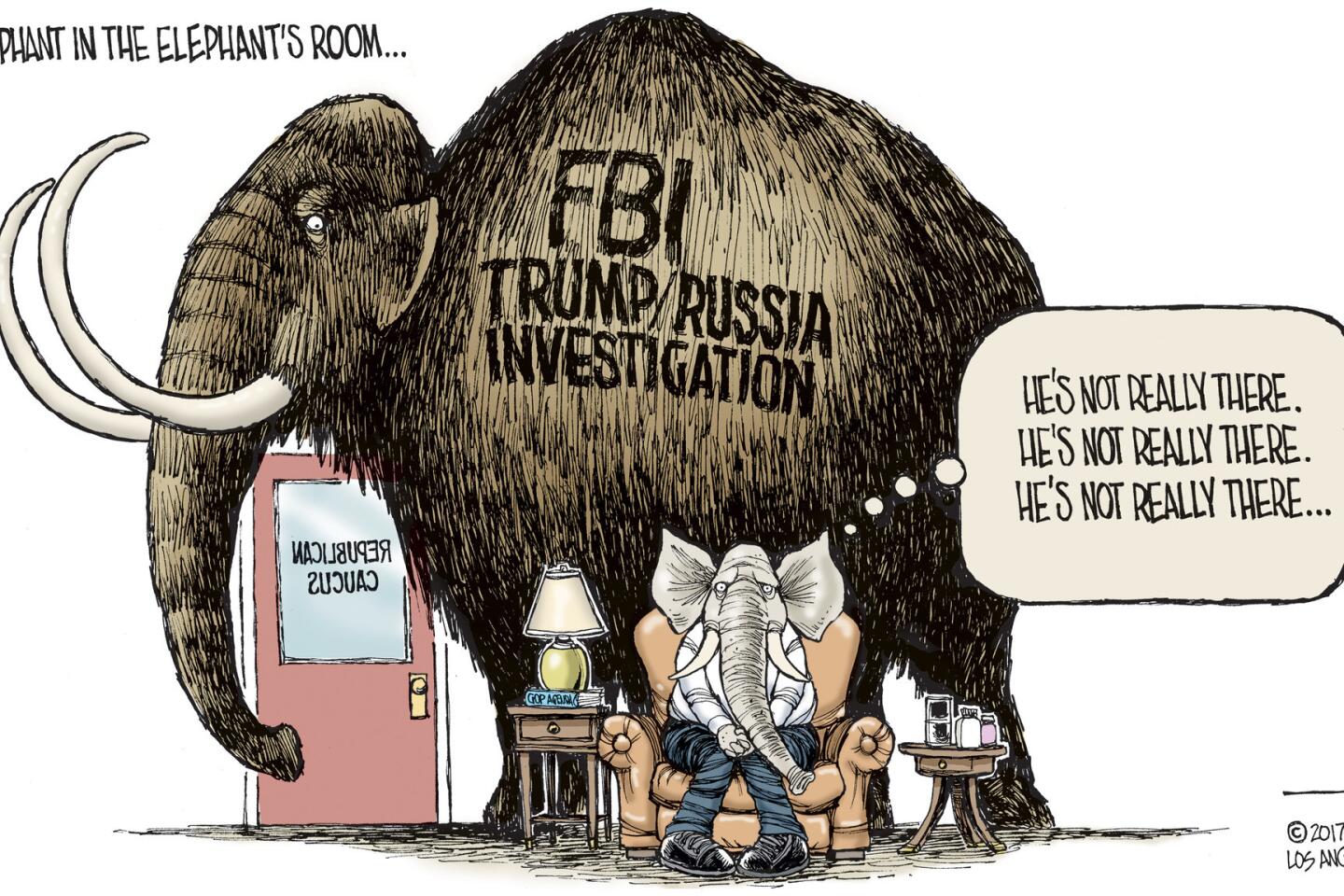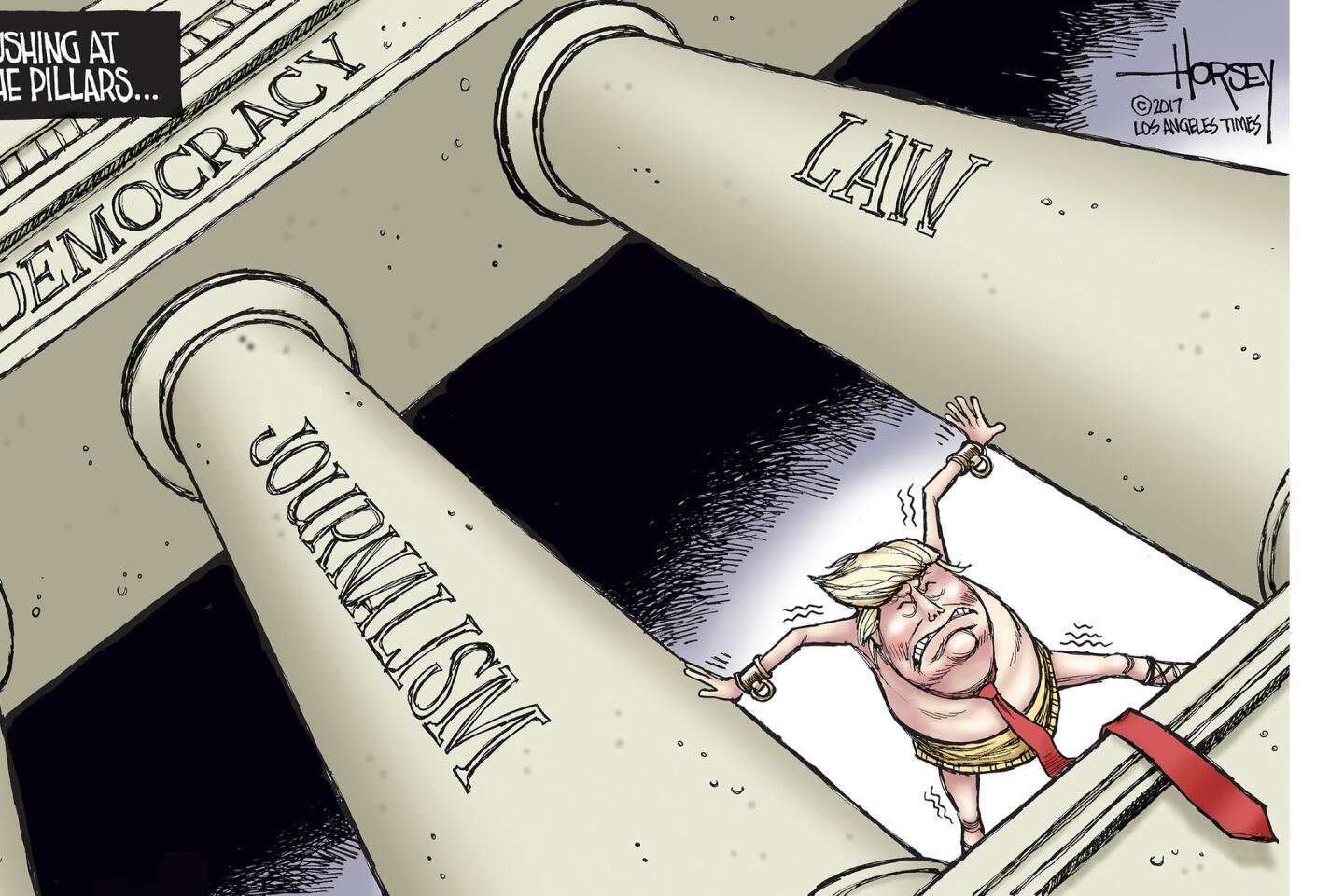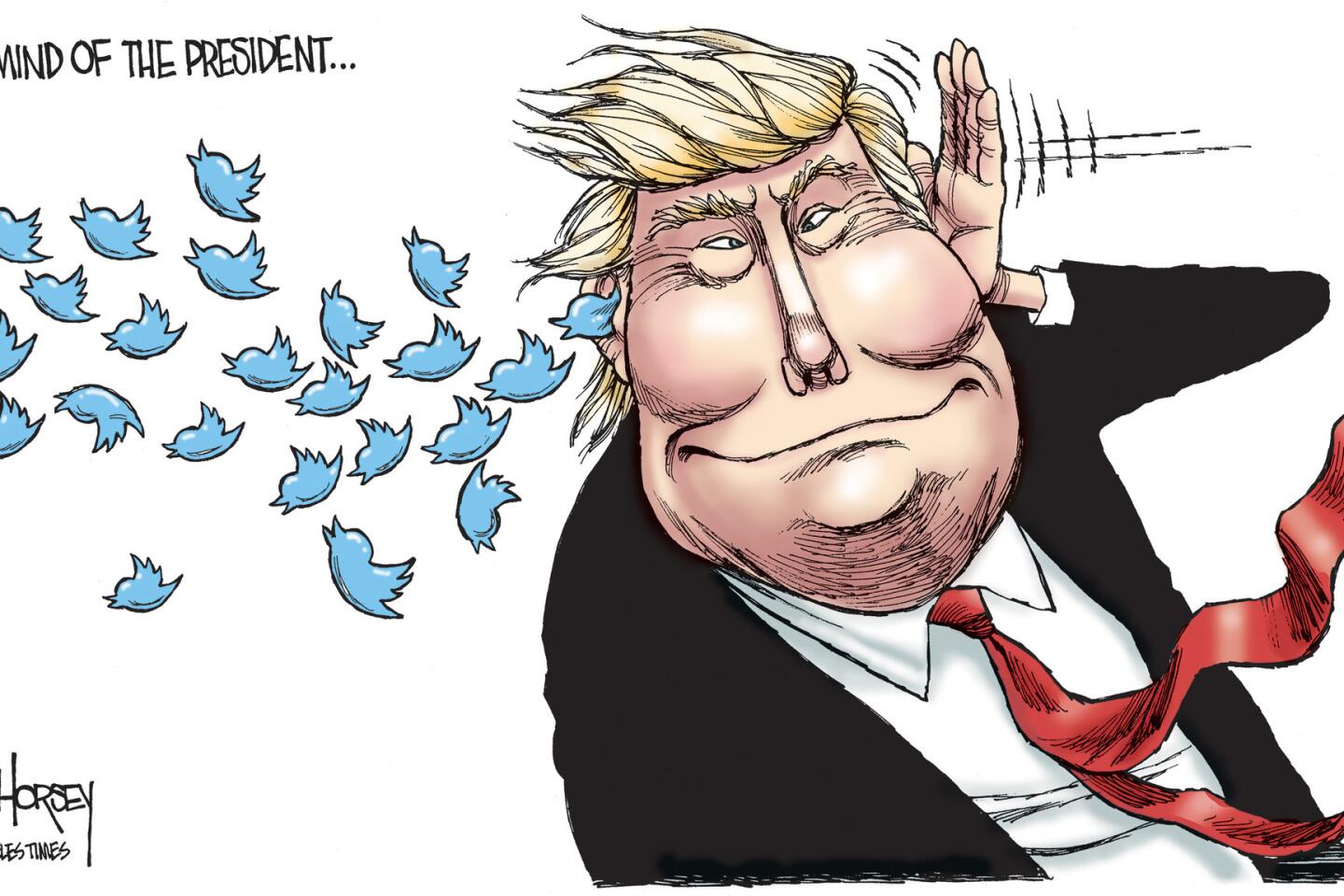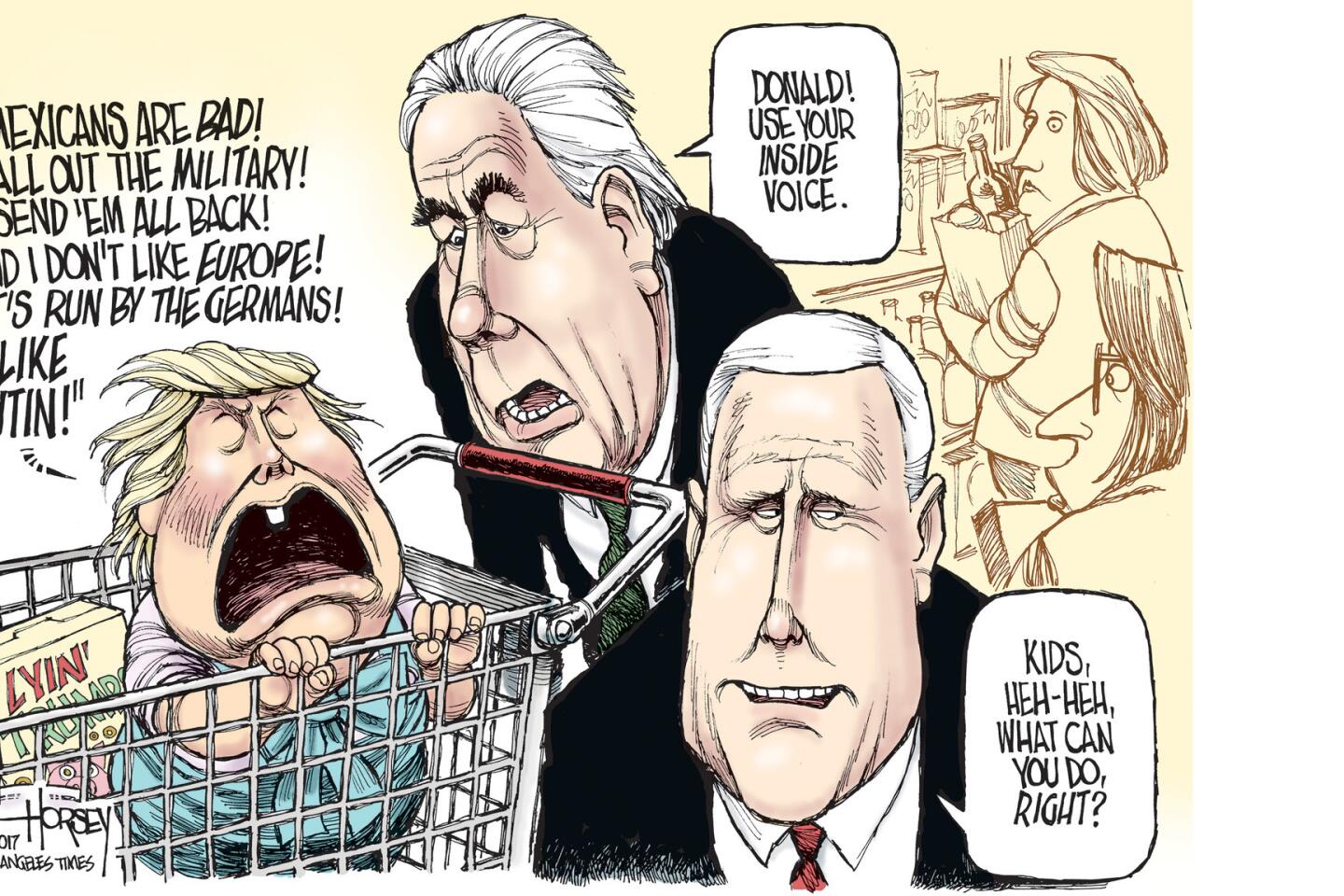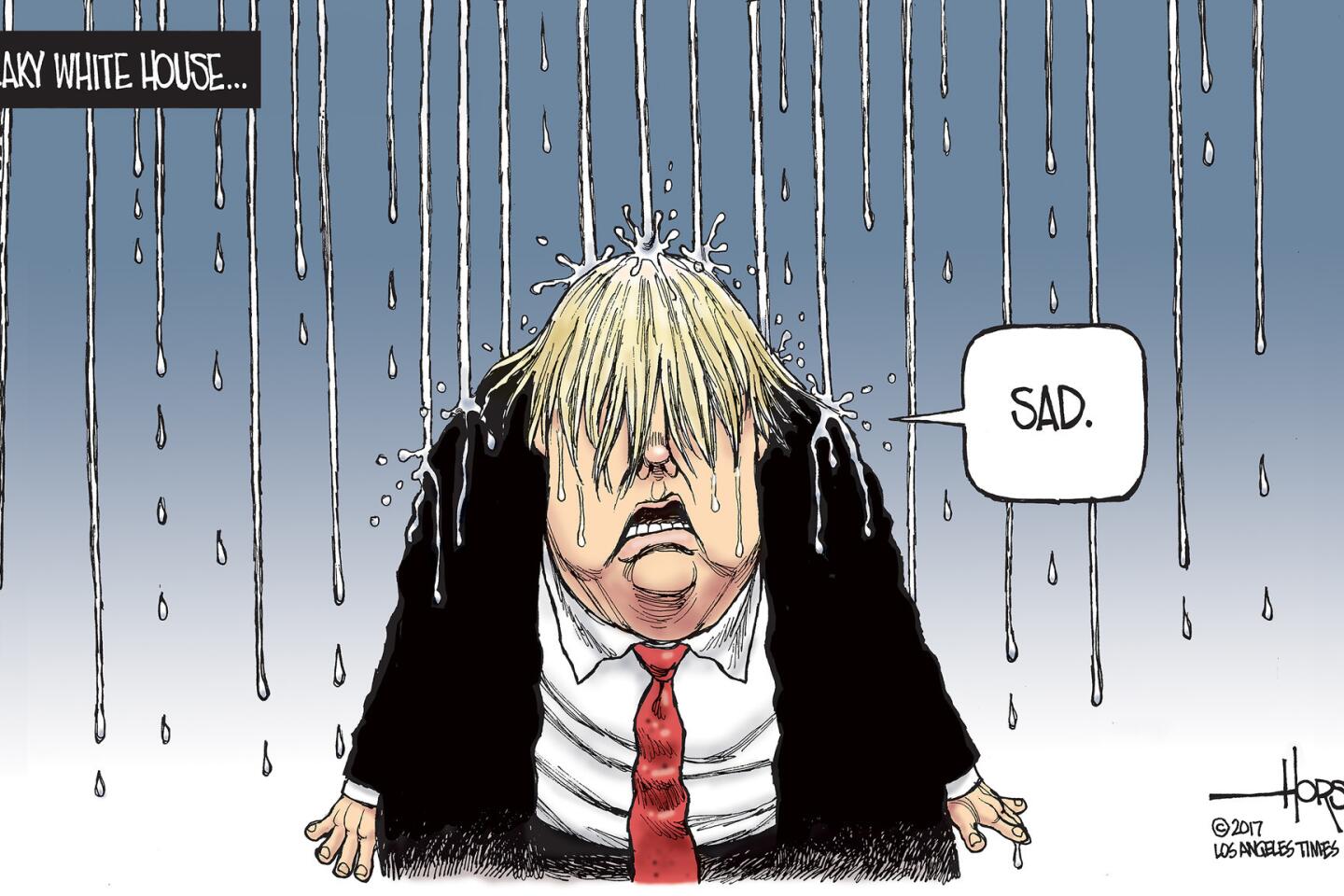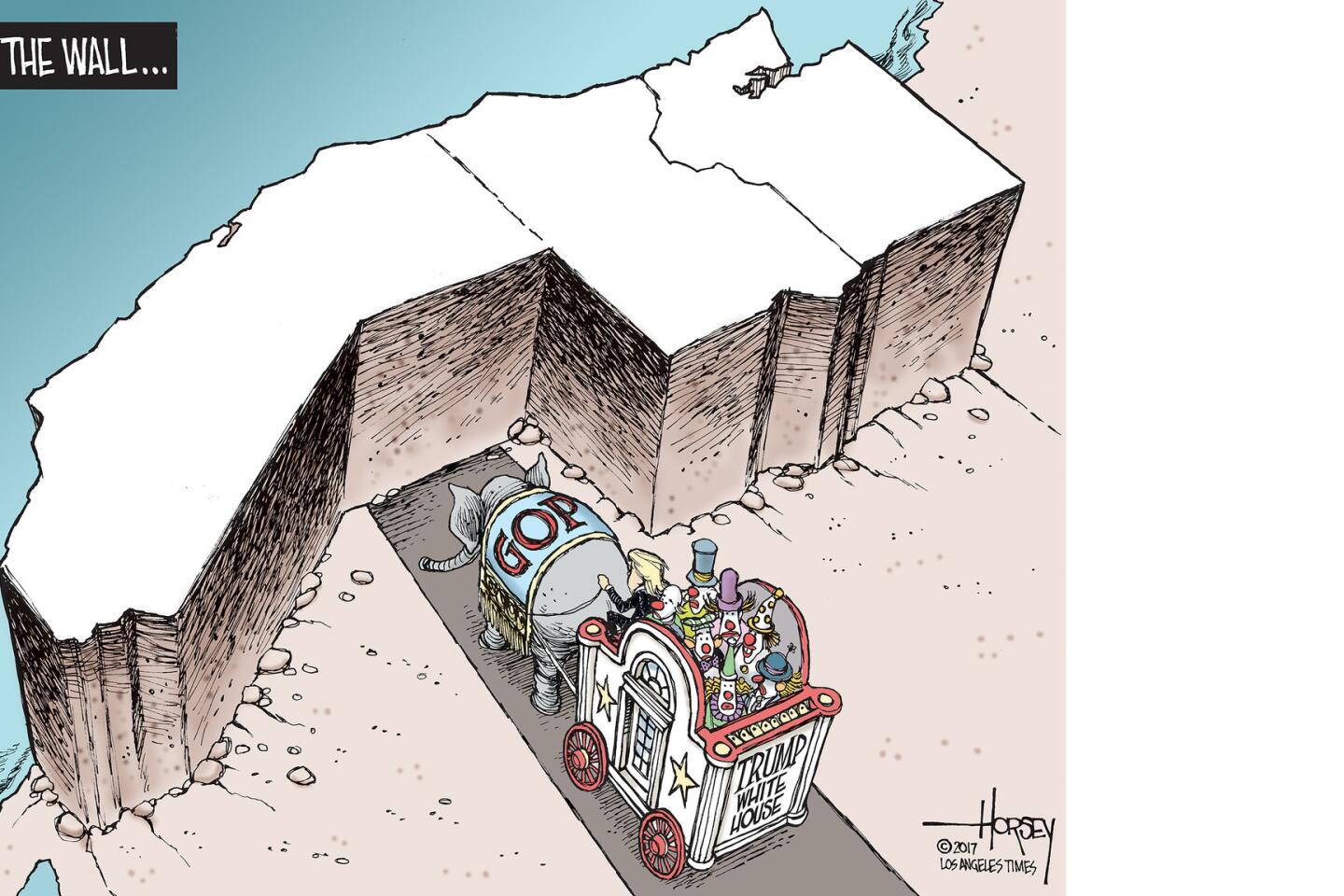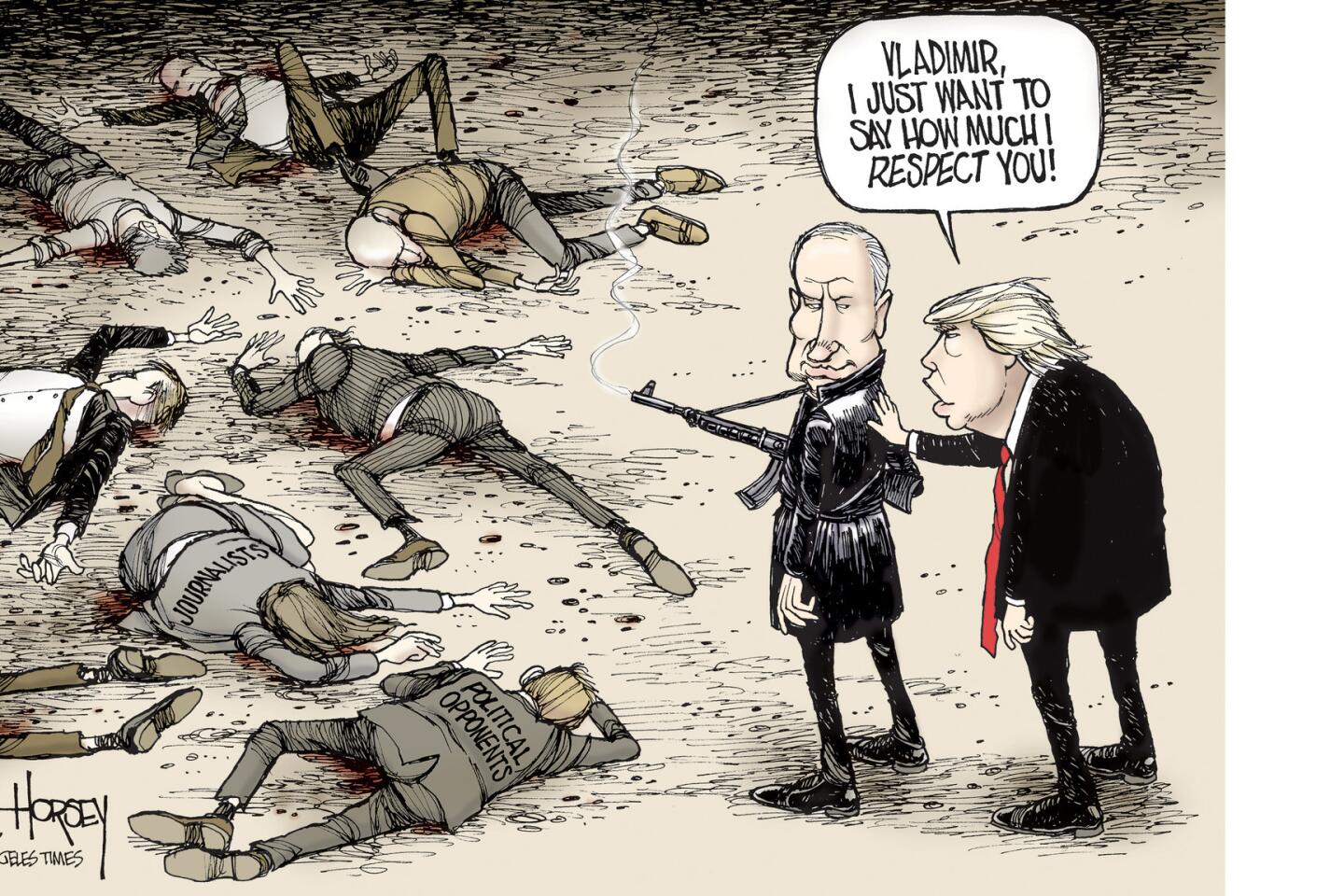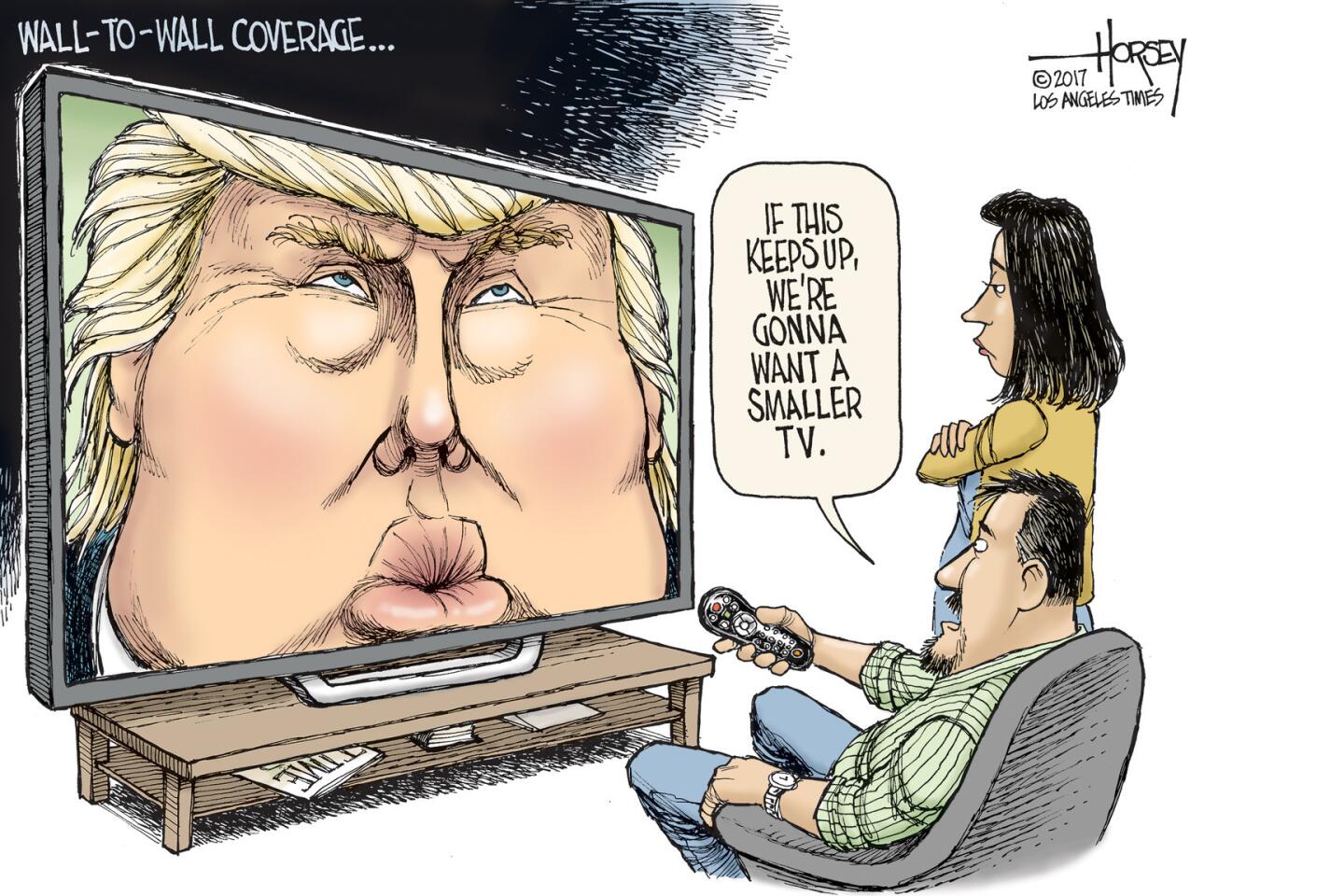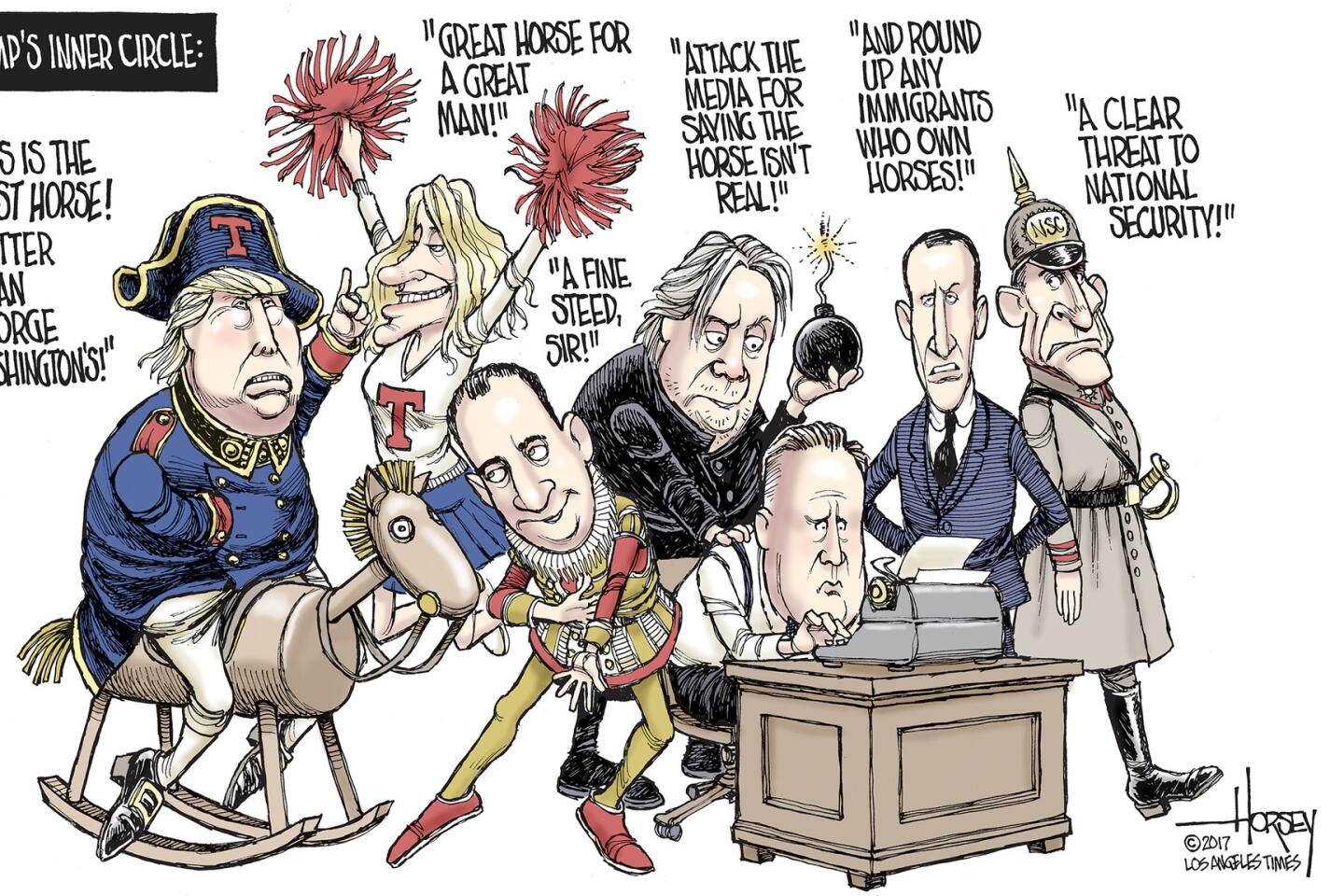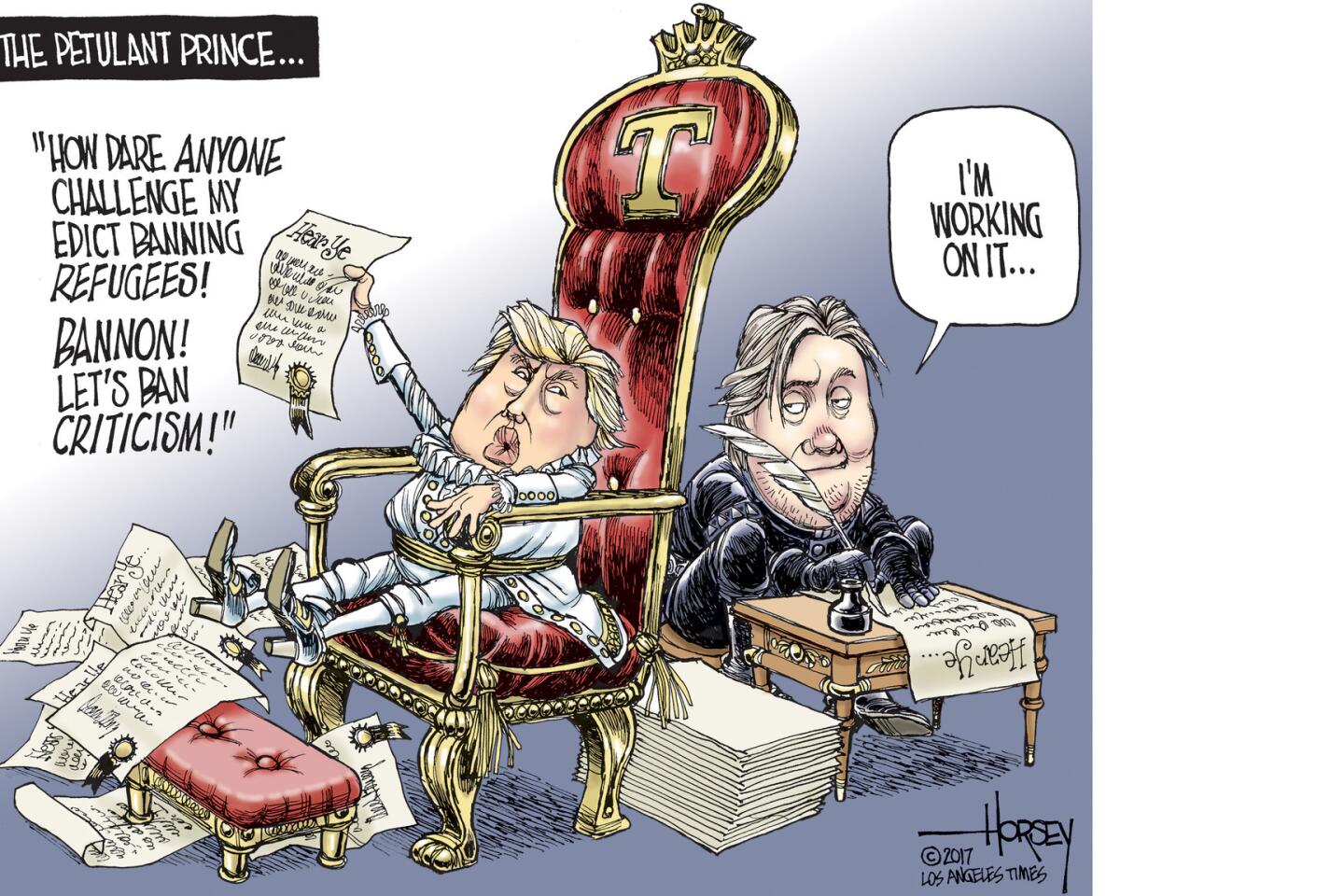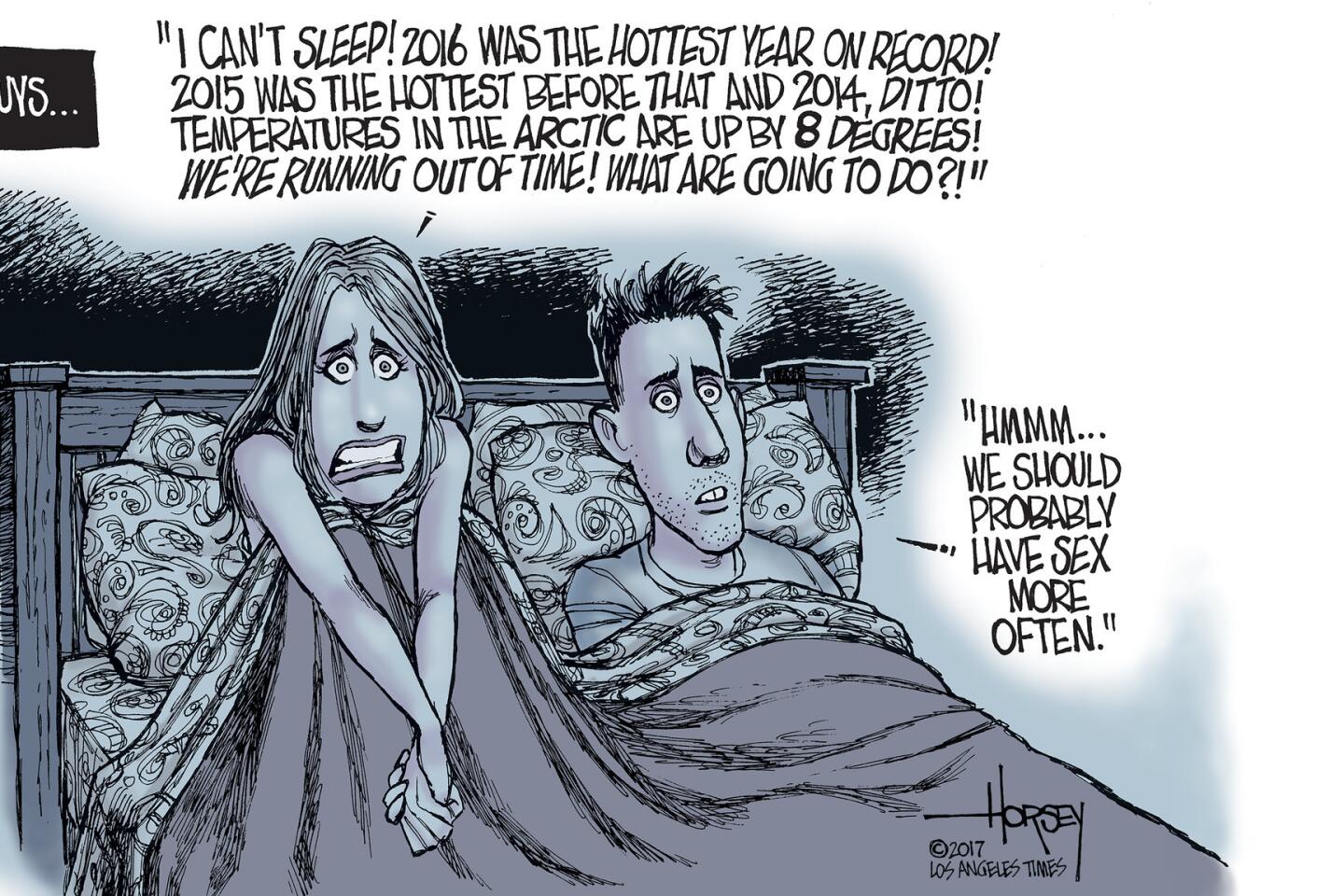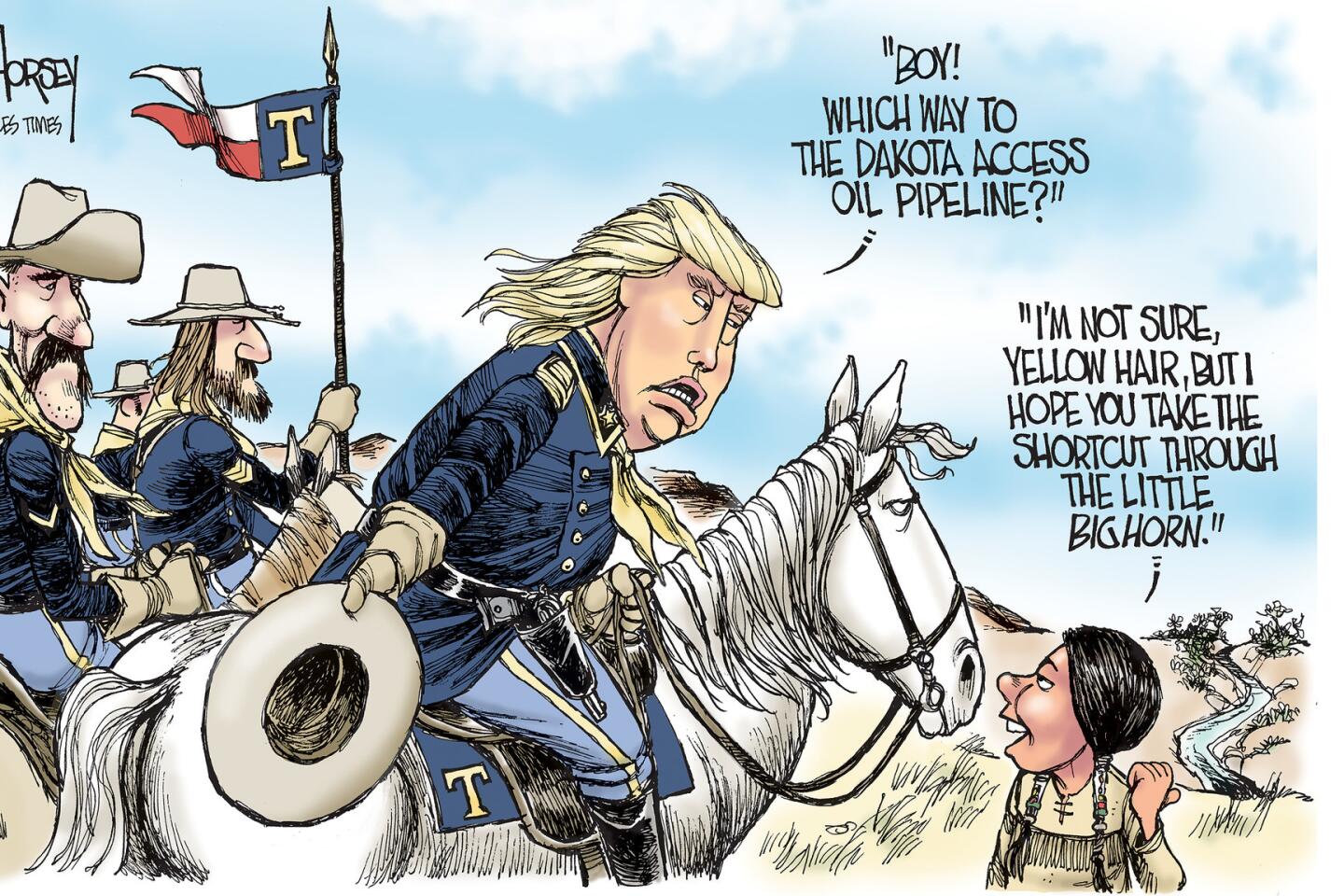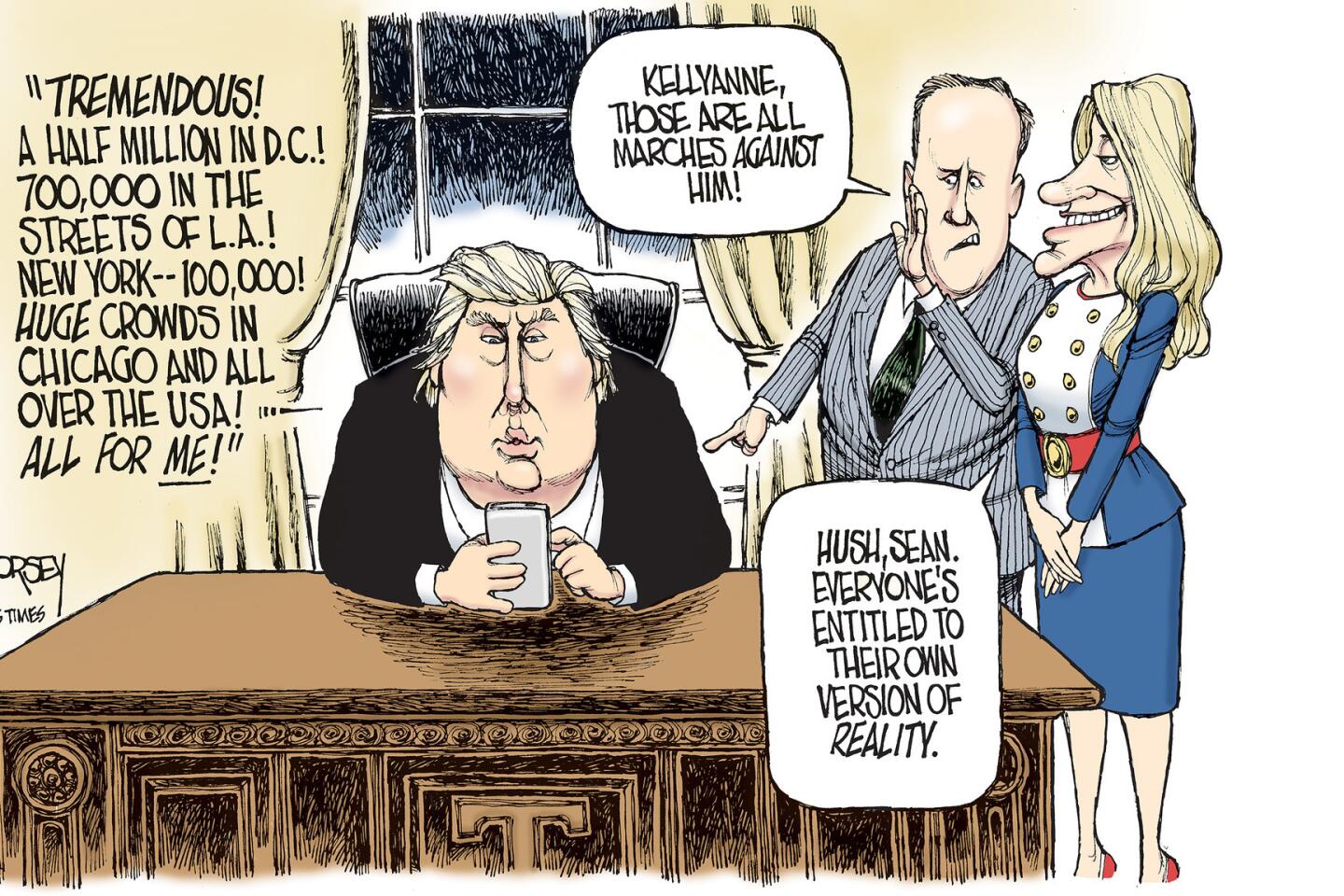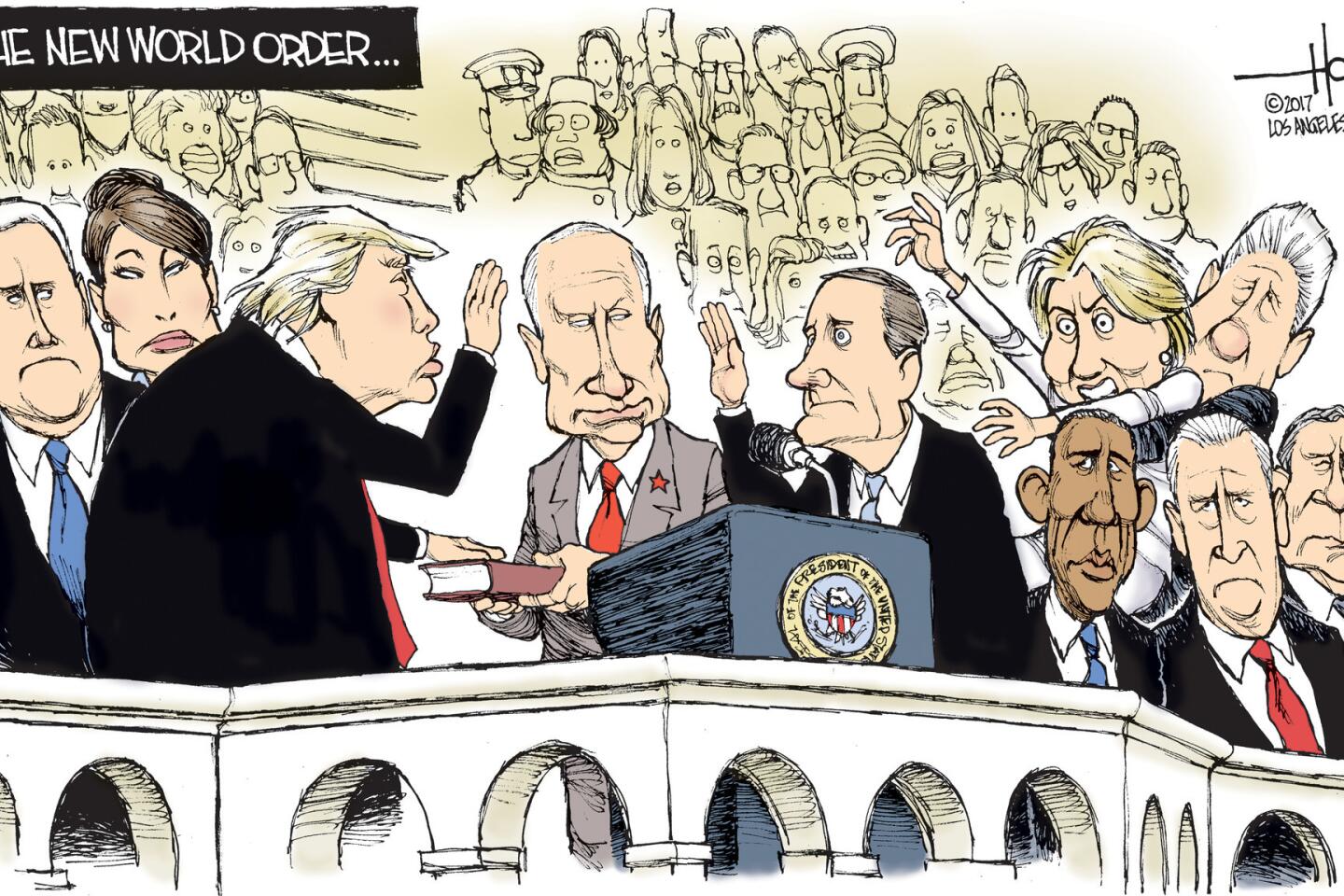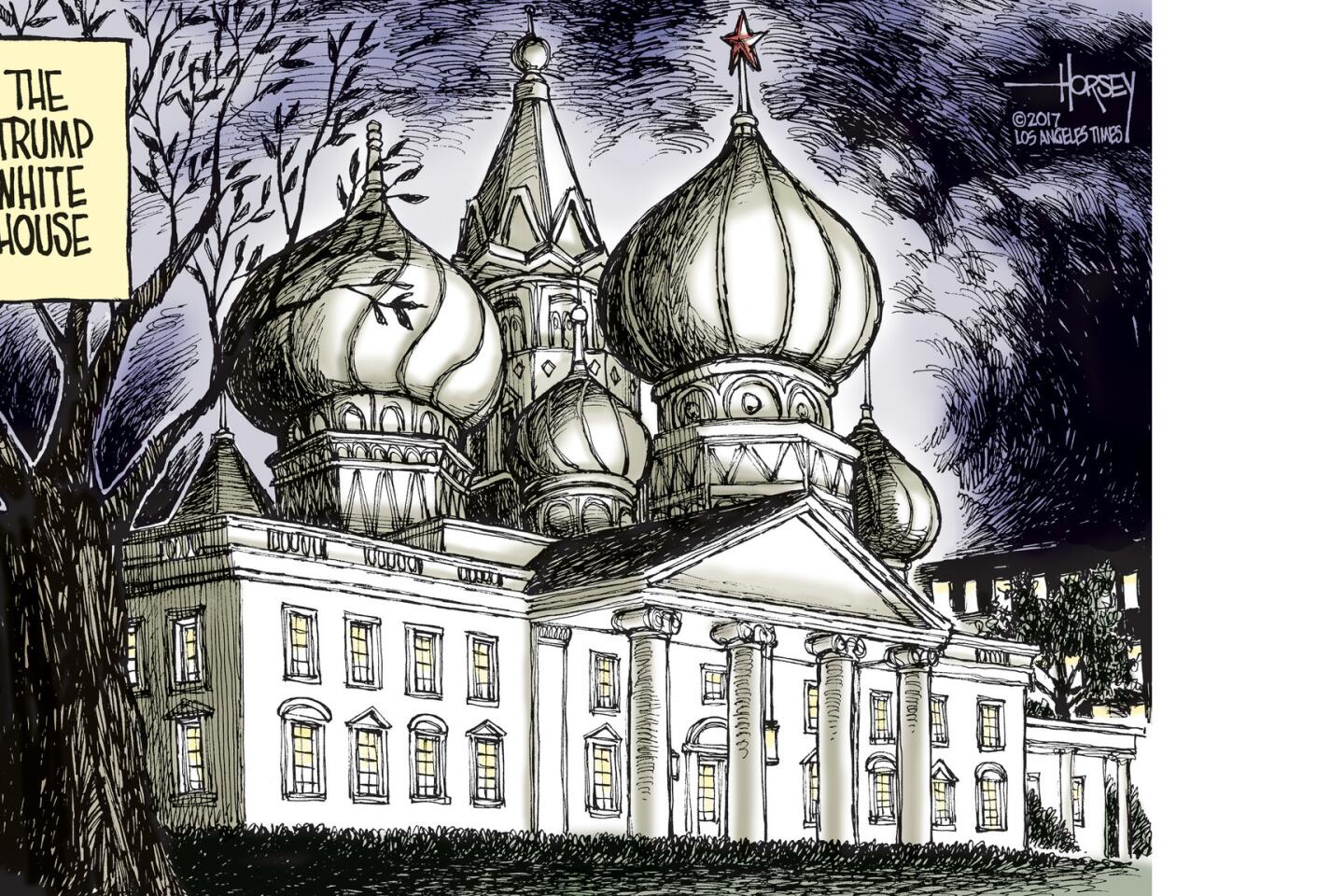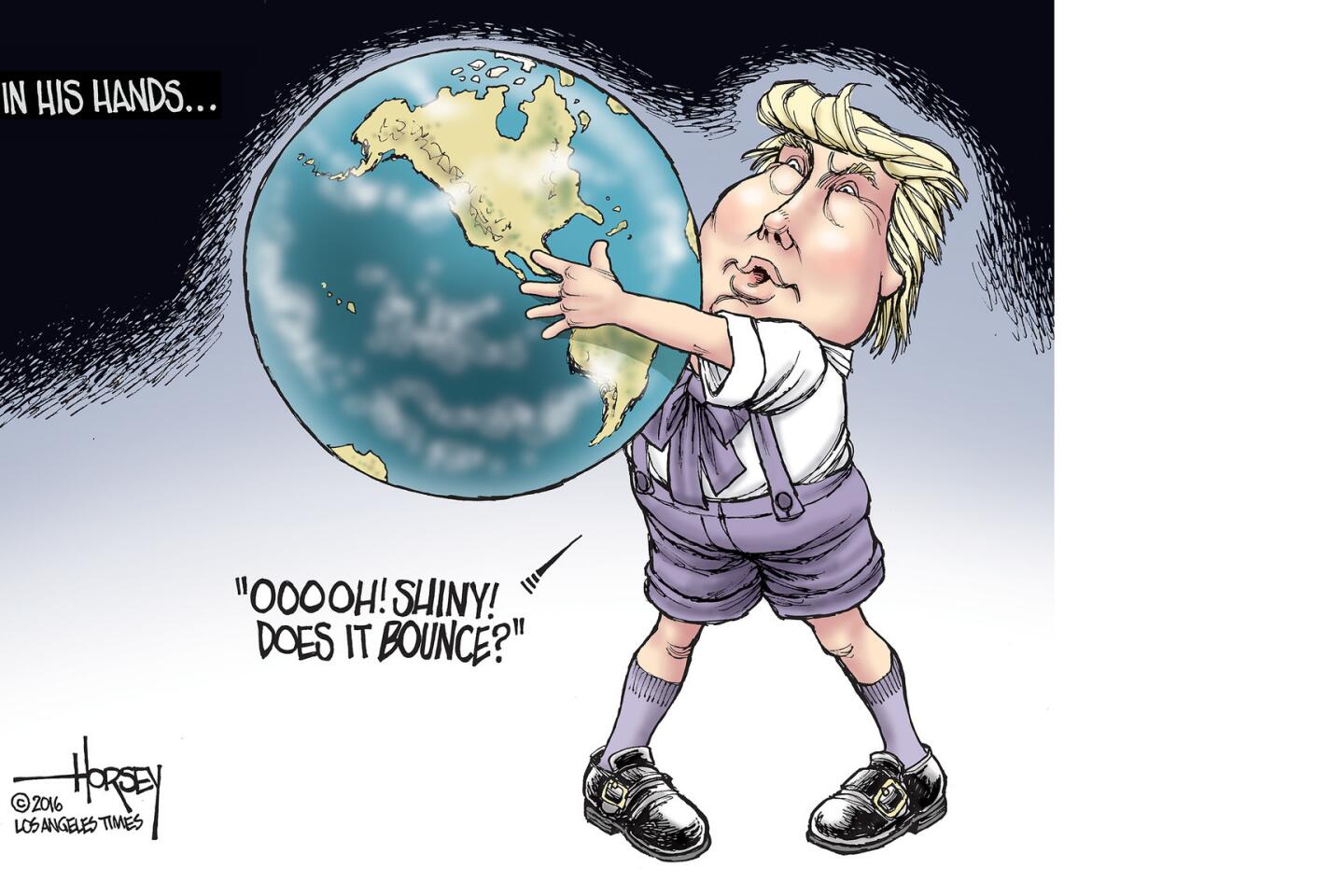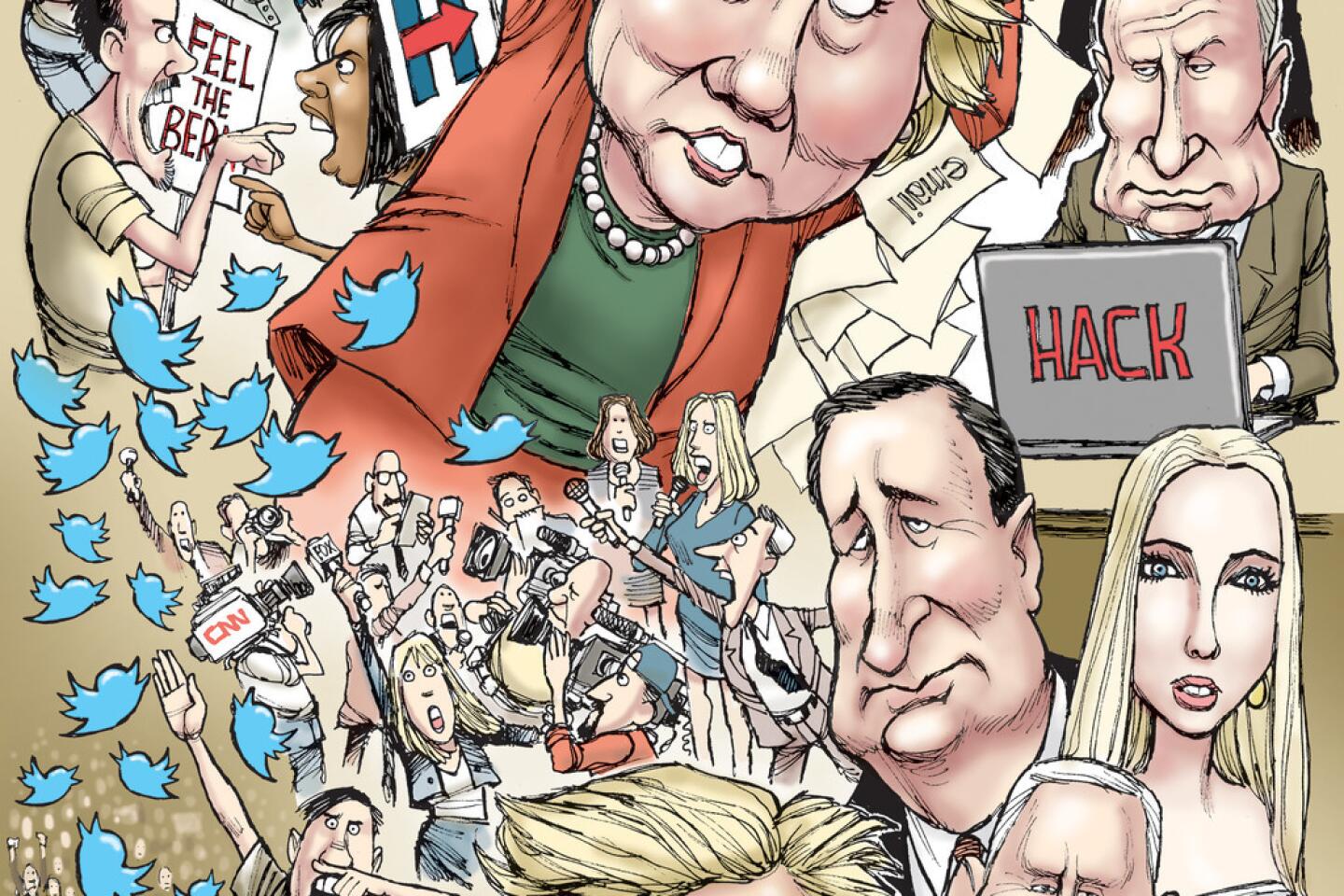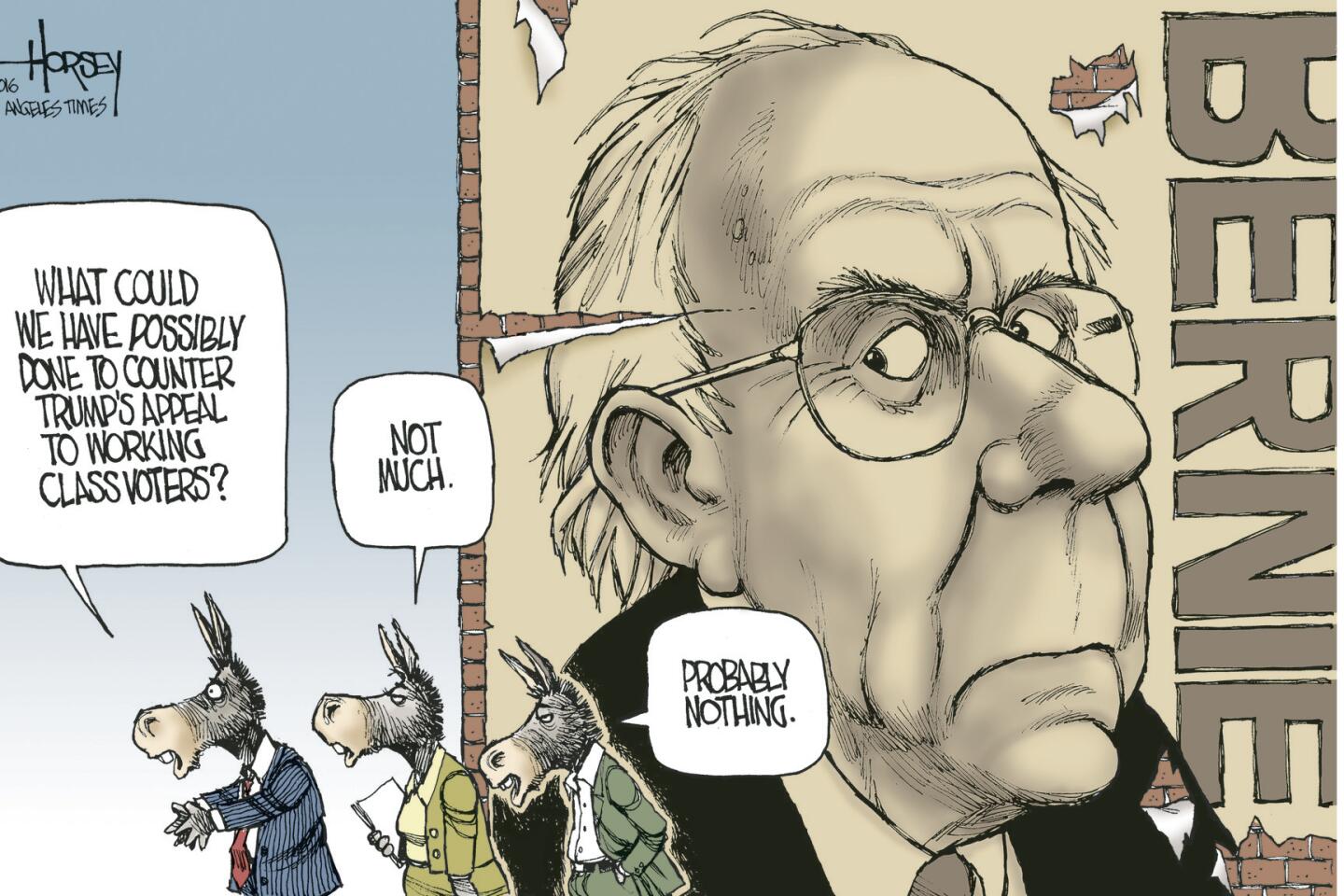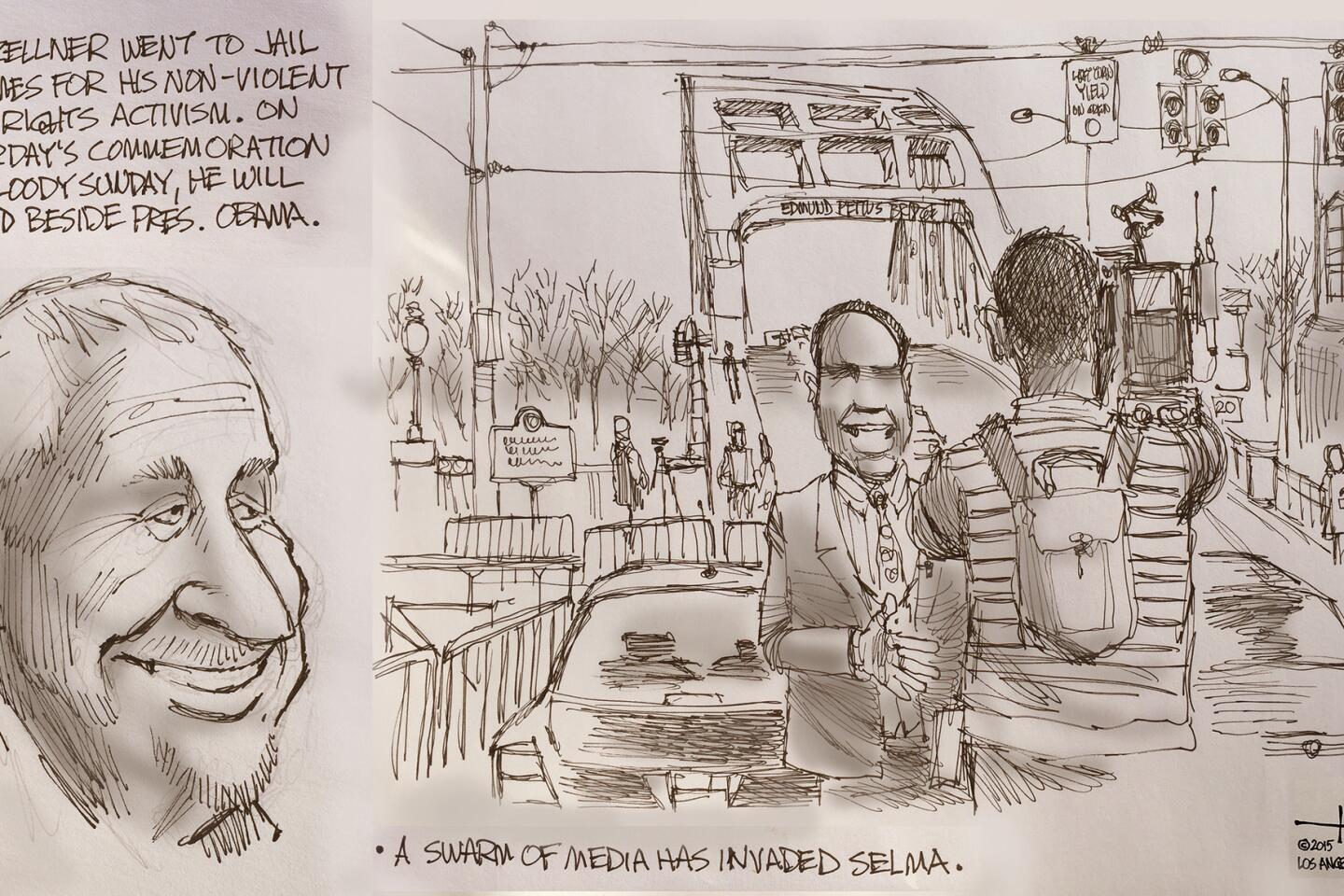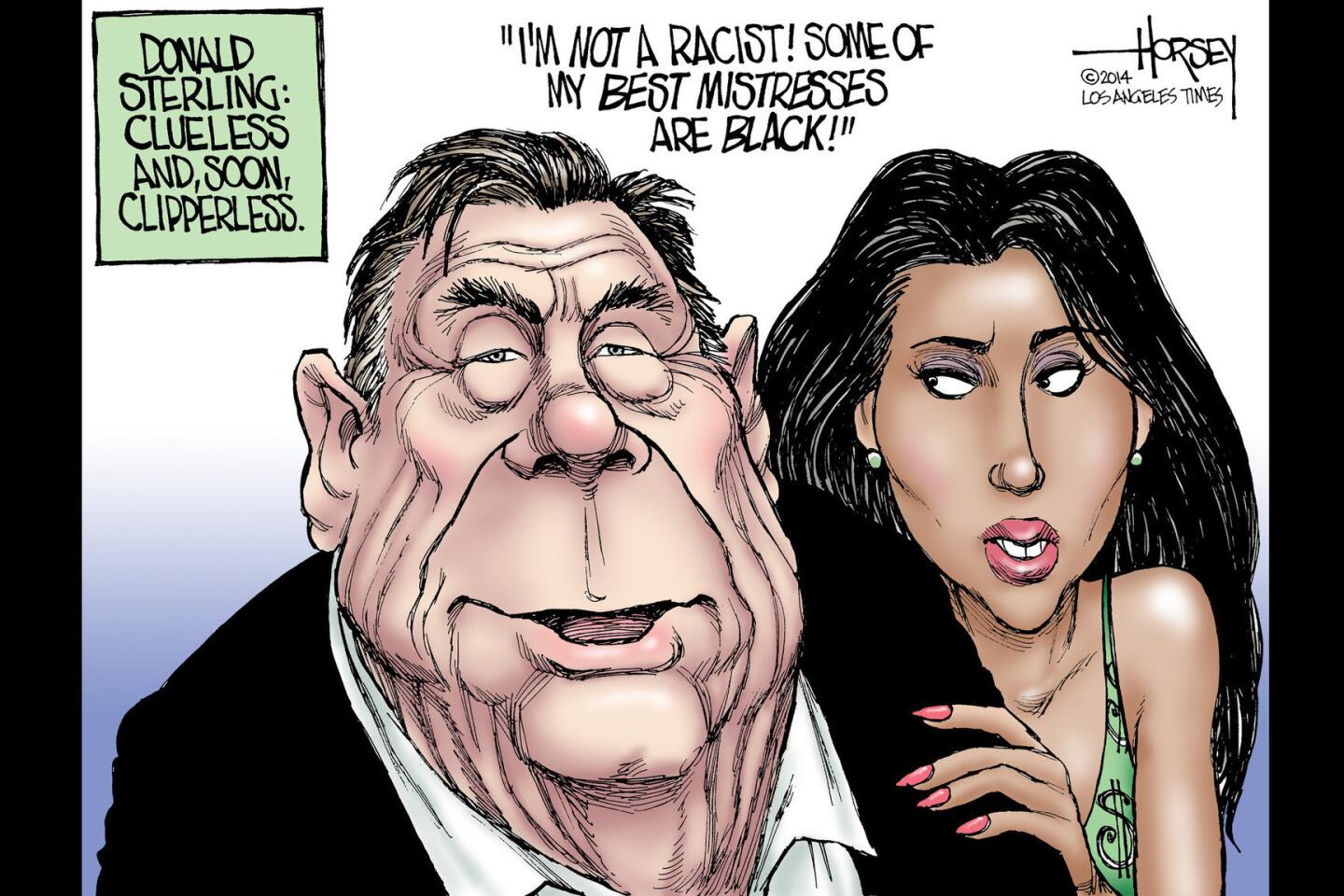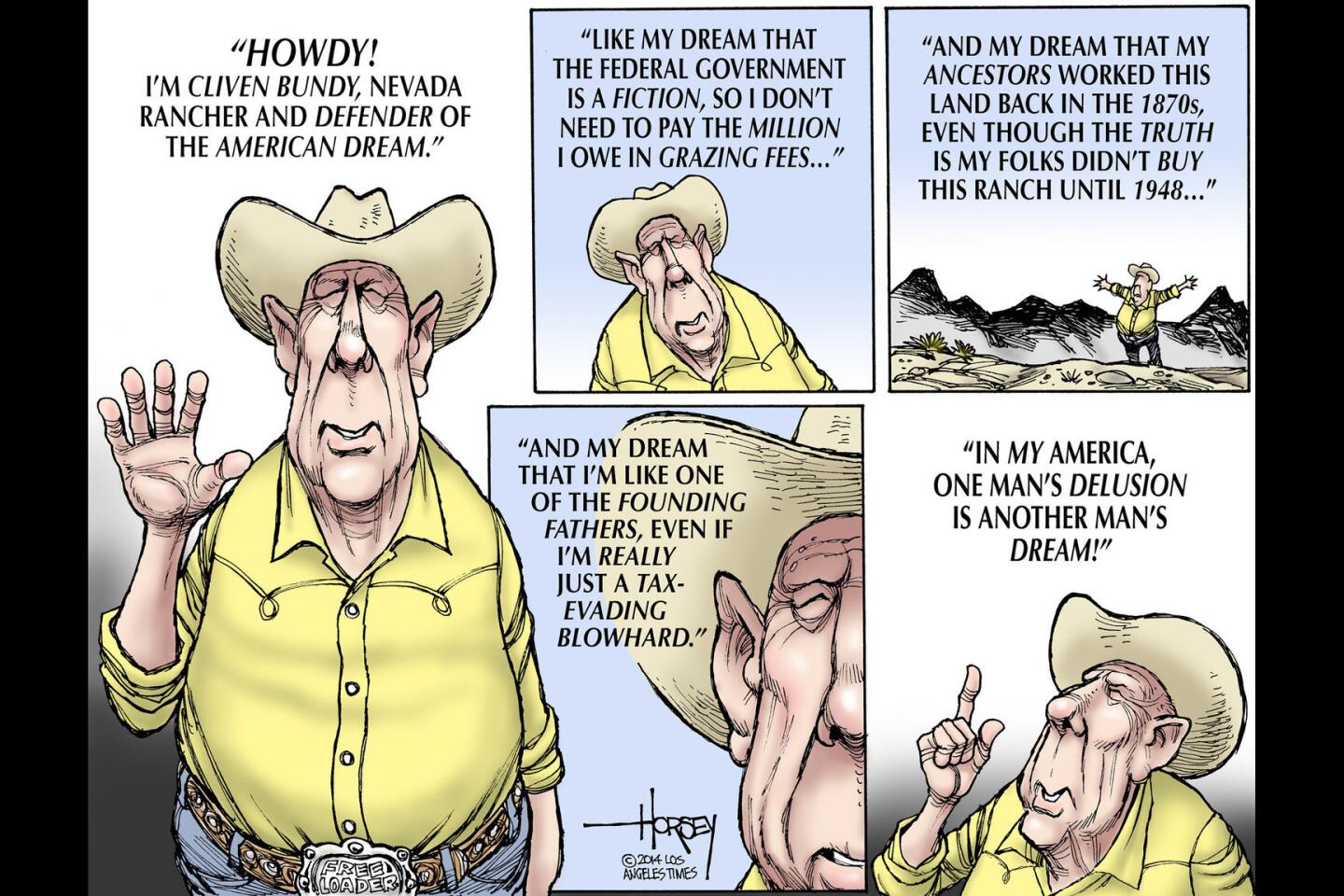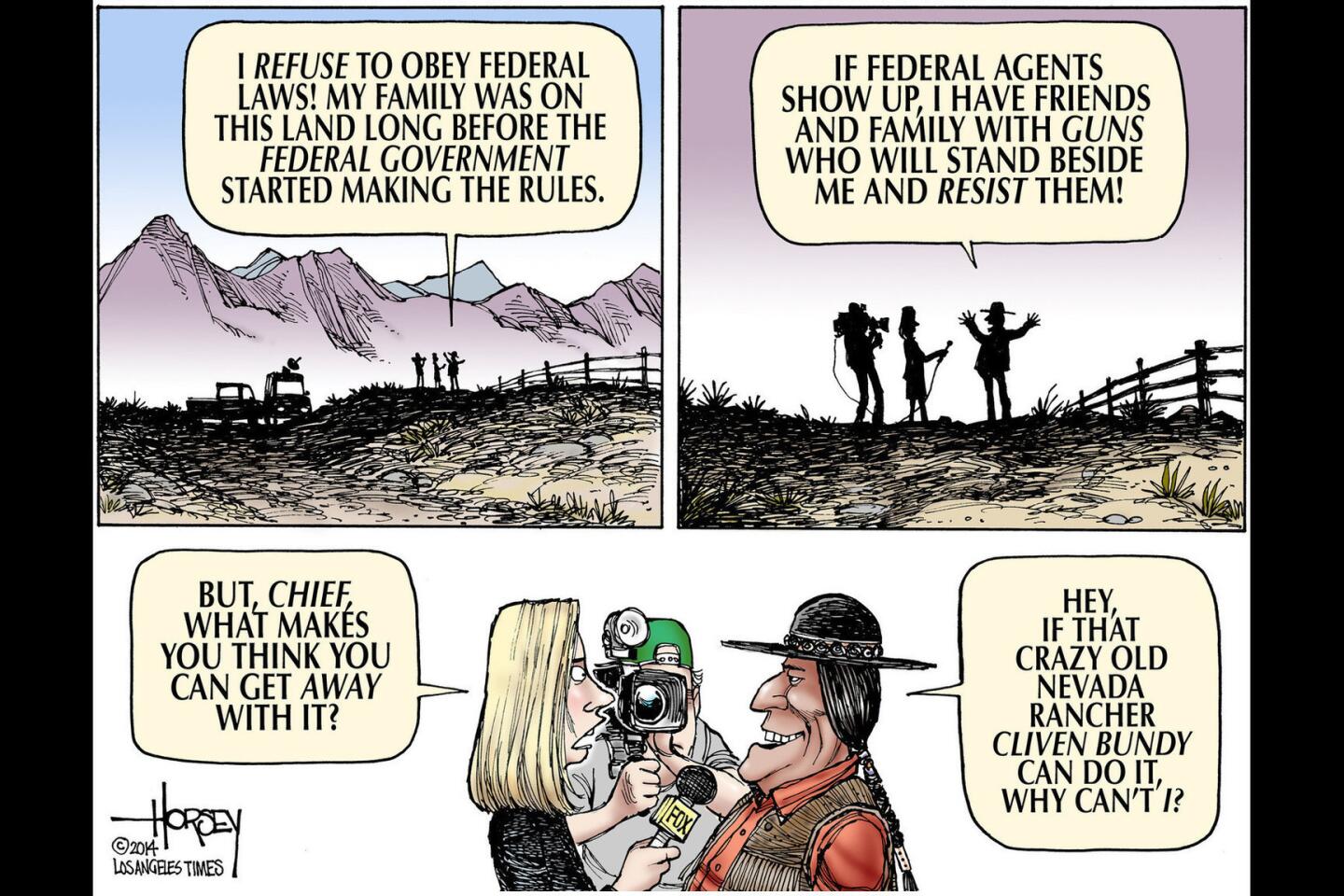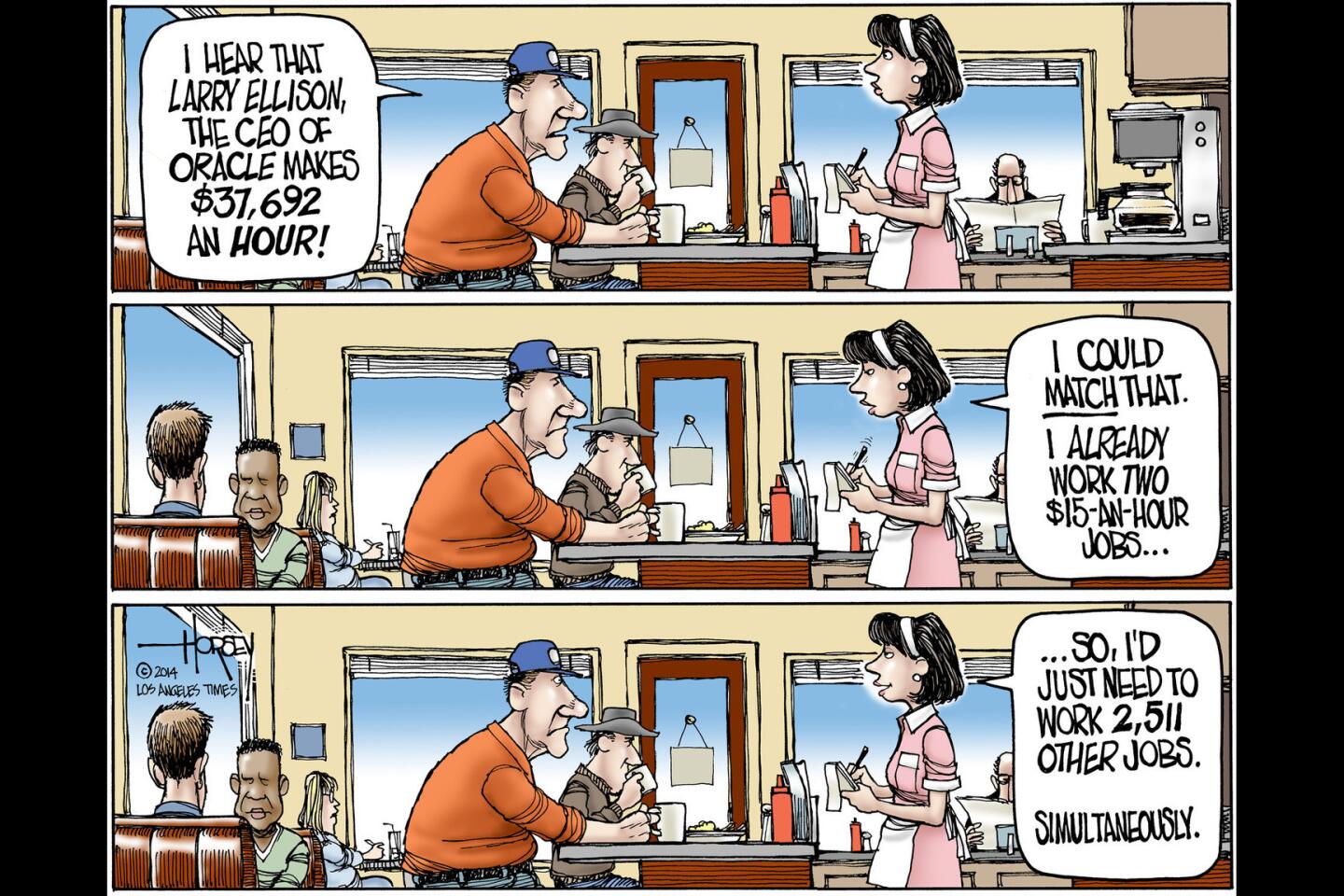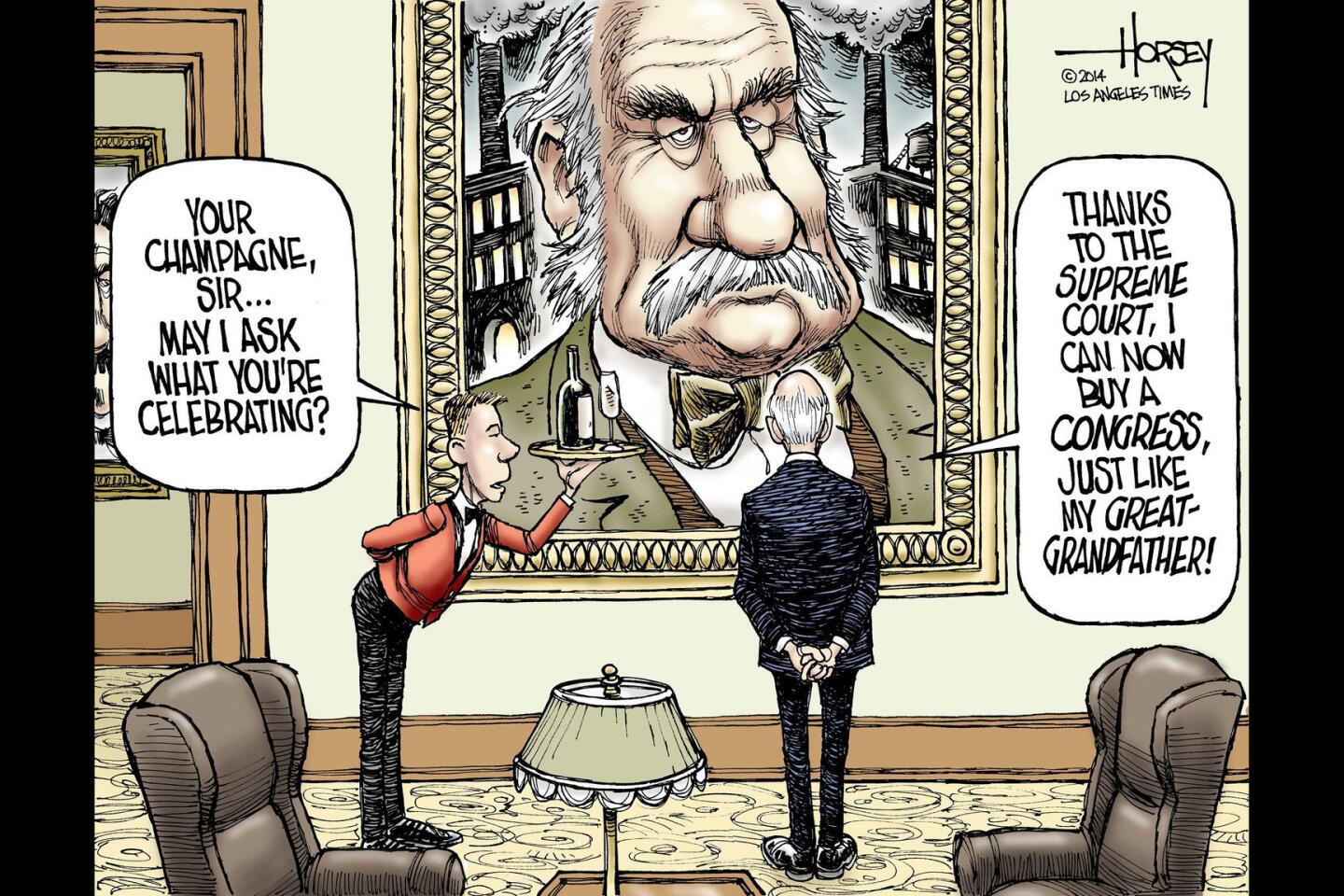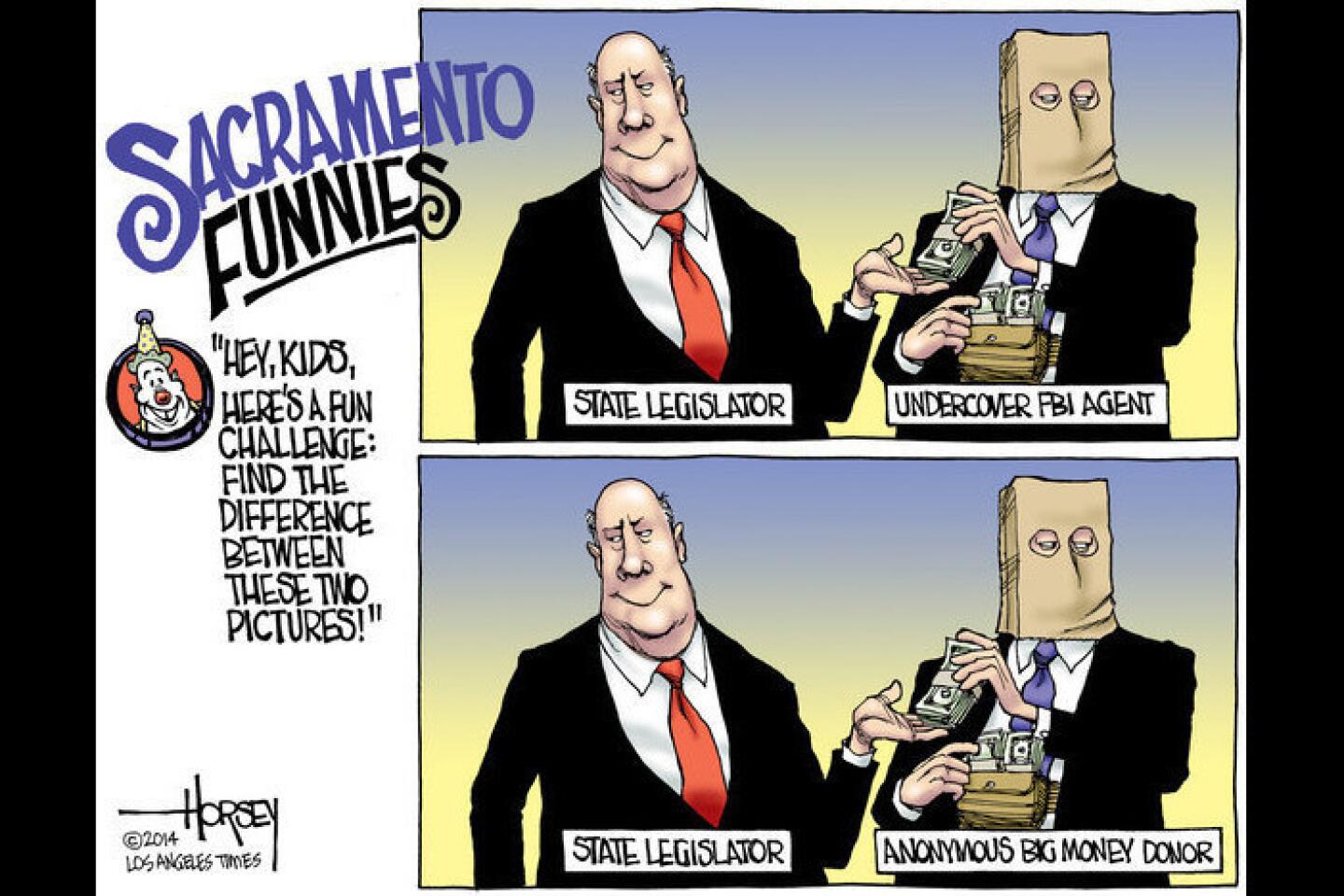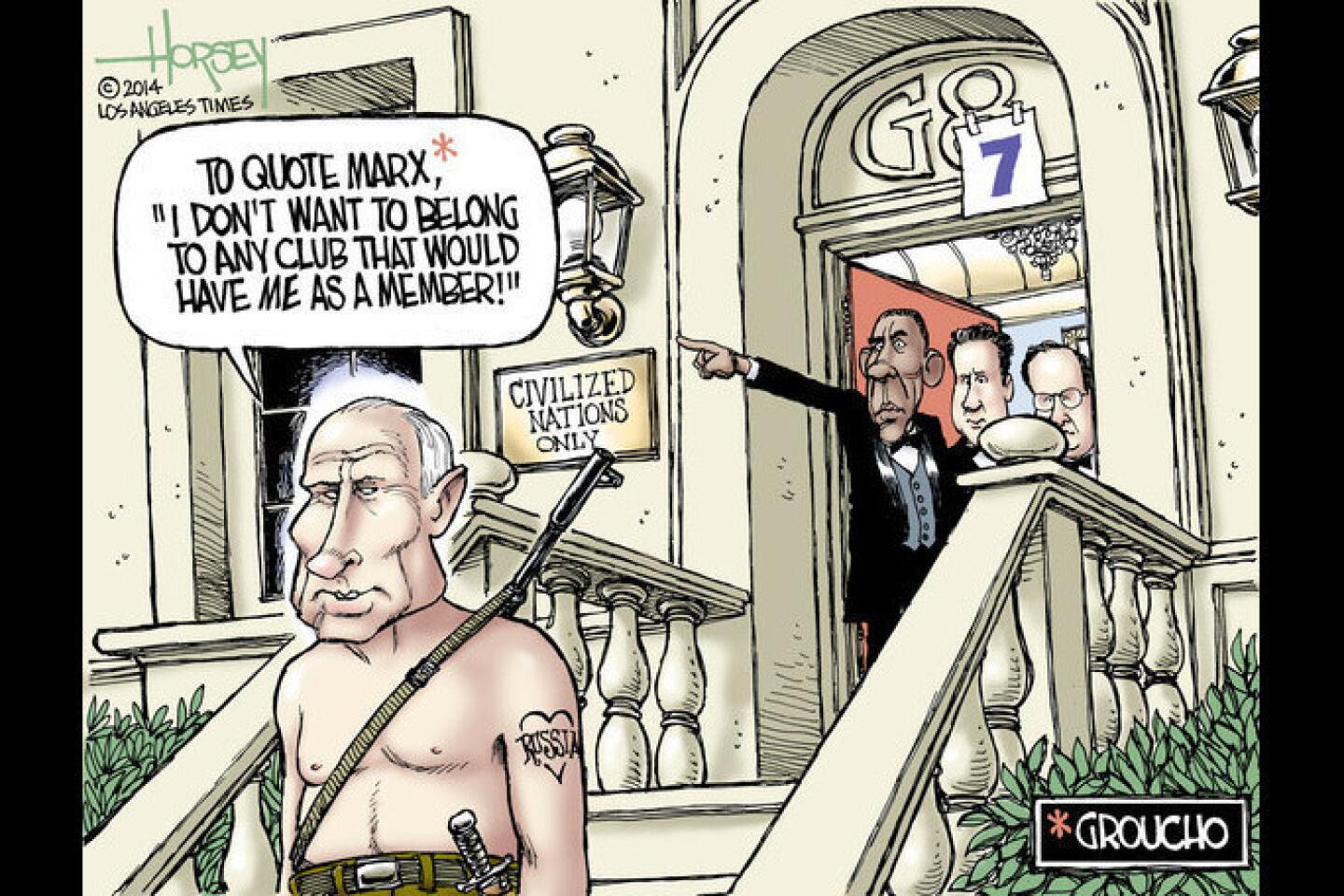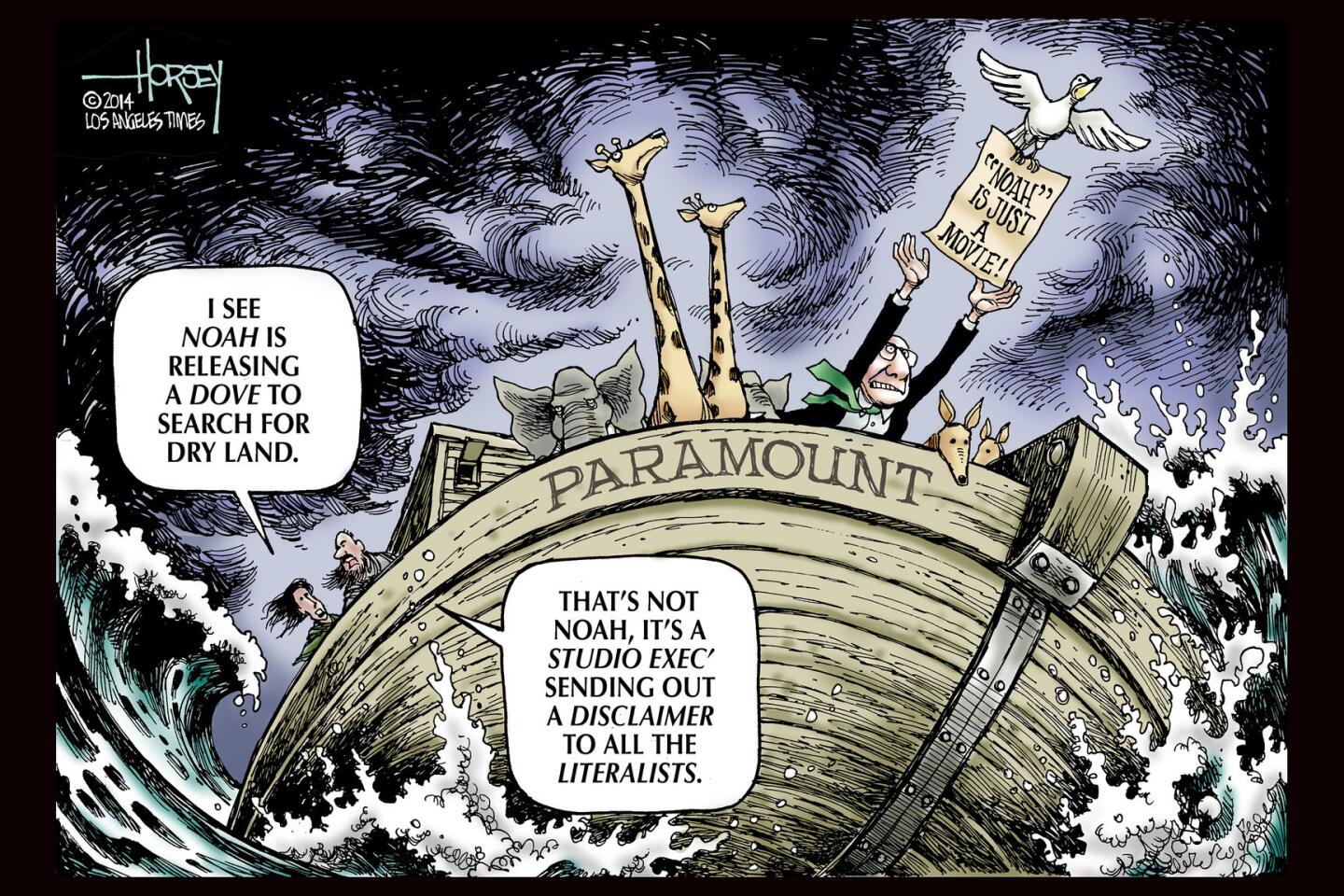Bannon and Trump leave the State Department stranded on the sidelines
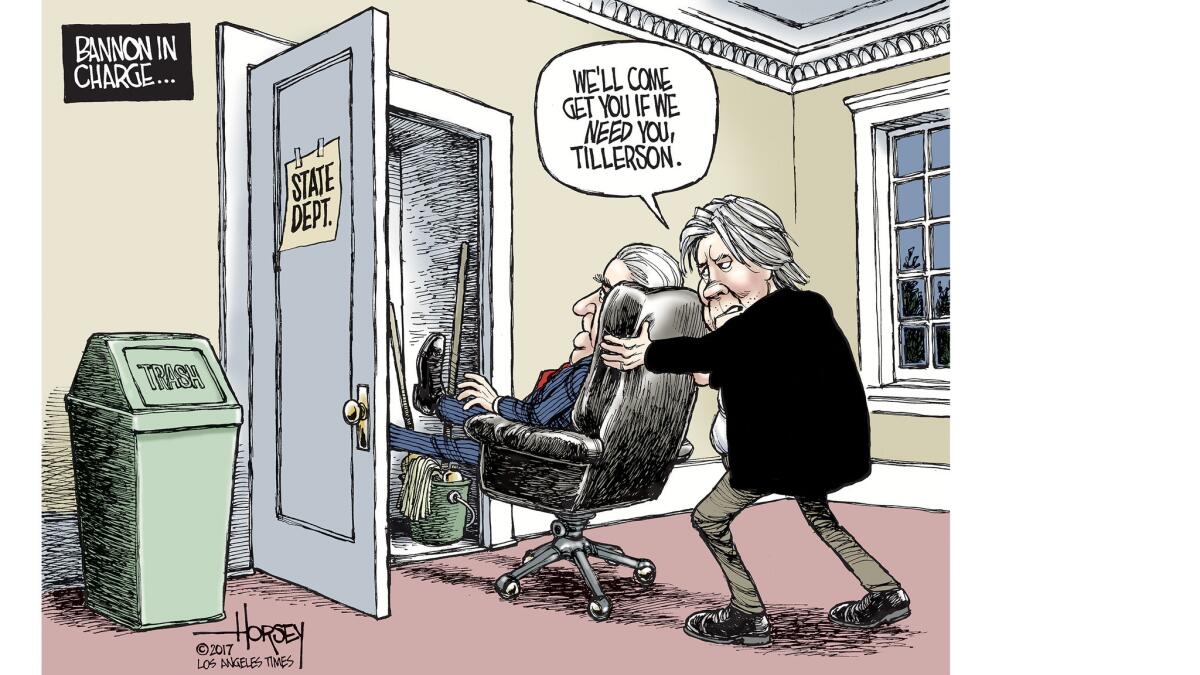
- Share via
In recent decades, Americans have become more aware, and more appreciative, of the sacrifices made by the men and women in the U.S. armed forces. It would be a good thing if we could develop the same sense of gratitude for the men and women in our diplomatic corps.
Many more American soldiers would have died on battlefields if American diplomats — from skilled ambassadors down to the most anonymous, unsung employees of the State Department — had not been doing the knotty business of preserving peace by building alliances, negotiating with adversaries and cultivating new friends in flashpoints across the globe. The Defense Department lays claim to half the discretionary federal budget while diplomatic programs limp along with barely 2%, but that relatively small expenditure has had as much to do with maintaining America’s preeminent position of leadership in the world as the trillions that have gone to the military.
Apparently, though, the Trump administration does not appreciate the indispensable contribution made by American diplomats. In fact, the president’s closest advisor, Stephen Bannon, exhibits a deep mistrust of State Department officials. Bannon is a hyper-nationalist and an enemy of what he calls “globalism.” Behind the scenes, he seems to be the one whispering words in President Trump’s ear that later come out in tweets or speeches that slam the usefulness of NATO, the importance of the European Union, the value of multilateral trade deals and the principle of opposing human rights violations in places such as Russia.
Numerous reports indicate that the Bannon-dominated White House is treating the State Department like a wayward child that needs to be spanked and sent to bed without supper. Apparently, the department’s chronically underfunded budget will be slashed as Trump shifts dollars to the Pentagon and to his border wall folly. Large numbers of veteran diplomats and experts who have served multiple presidents have been dismissed. Hundreds of jobs remain unfilled. Those who stay on have received scant direction about what they are supposed to be doing. Dangerously, in the day-to-day business of protecting U.S. interests in international relations, Americans are suddenly missing in action.
There is a new secretary of State, of course — former Exxon Mobil boss Rex Tillerson. Given his heft in the corporate world, it was expected he would be a major player in an administration staffed by lightweights. But Tillerson was not allowed to pick his own deputy. His choice, Elliot Abrams, was nixed by Trump. Reports indicate that Bannon made sure the president was reminded of negative statements Abrams had made about Trump during the campaign.
Neither Tillerson nor anyone at the State Department was brought in to offer advice when Bannon and the White House crew were cobbling together their ill-fated ban on immigrants from seven Muslim nations. Tillerson has been left out of meetings with several world leaders, including the prime ministers of Canada and Japan. Meanwhile, U.S. policy to promote peace in the Middle East has been handed off to Trump’s son-in-law, Jared Kushner, a young man with zero experience in foreign affairs.
Tillerson is doing one thing that probably gets the new president’s approval; he is shunning the media. He allowed only a few journalists to travel with him on his recent trips to Mexico and Europe and is heading off on a very important journey to China, Japan and South Korea with no reporters at all in tow. CNN’s Jake Tapper expressed his concern about this in a tweet: “Not bringing press on a trip like that is unusual & insulting to any American who is looking for anything but a state-run version of events.”
Making it difficult for the media to get access is a bad thing. Even worse, though, is the inclination of the president and his tiny circle of novices to make things up as they go along instead of giving the patriots in the State Department the support they need to do their jobs.
Follow me at @davidhorsey on Twitter
ALSO
Paul Ryan’s ‘Trumpcare’ does not entirely repeal or replace Obamacare
Pence and Tillerson’s message to allies: Ignore the tweeter in chief
To blunt Trumpism, resistance will need to translate into votes
More to Read
A cure for the common opinion
Get thought-provoking perspectives with our weekly newsletter.
You may occasionally receive promotional content from the Los Angeles Times.

